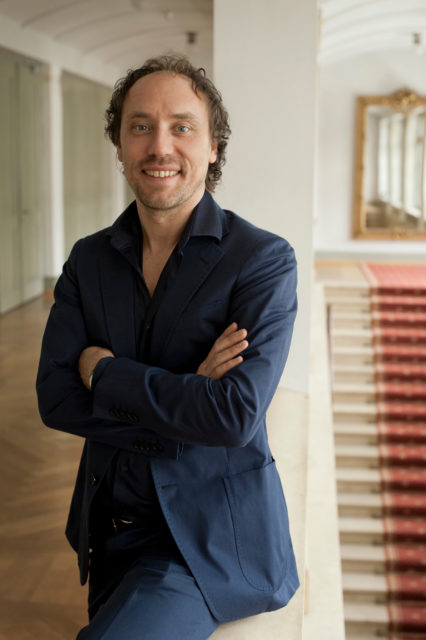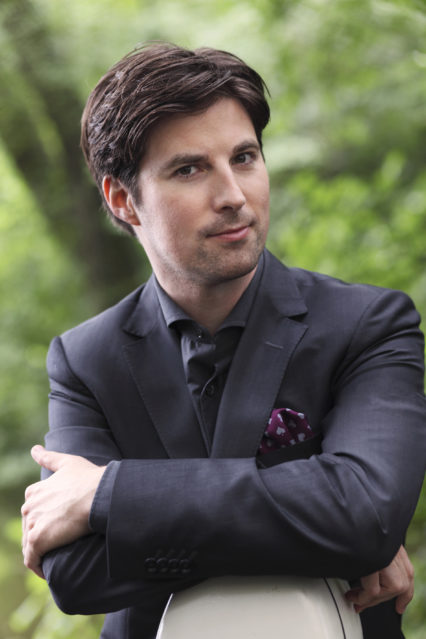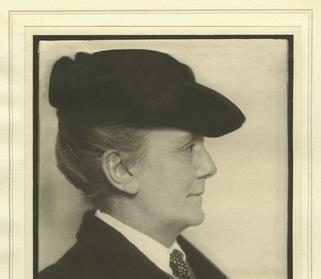David Truslove reviews the fourth and final Prom of the season.
Prom 24: Royal Albert Hall, London,
Wednesday 1st August 2018
Smyth – The Wreckers – On the Cliffs of Cornwall (Prelude to Act Two)
Dvořák – Cello Concerto in B minor
Strauss – Ein Heldenleben
Daniel Müller-Schott (cello)
BBC National Orchestra of Wales
Conductor: Otto Tausk
This popular programme saw the BBC National Orchestra of Wales give their fourth and final Prom of the season. Entitled ‘A Hero’s Life’ and directed by Danish conductor Otto Tausk (making his Proms debut), this concert pulled together three works all written within a decade of each other, revealing different facets of Romanticism and, in the opening work, Impressionism too.

Dame Ethel Smyth is one of numerous British composers inspired by the sea (Bax, Bridge, Britten and Grace Williams readily spring to mind), and of her half-dozen stage works it is her Overture to the maritime opera The Wreckers, completed in 1904, that still holds a place in the repertoire and was once a regular fixture at the Proms. The Prelude to Act 2, ‘On the Cliffs of Cornwall’, is marvellously atmospheric and when performed on its own makes a fine tone poem. Its orchestration may prompt echoes of the late German Romantics, but there is also a degree of English reserve in its somewhat halting momentum. That’s not to say it’s without character or import as the BBC NOW made clear in its surging evocations, inevitably prompting associations with Peter Grimes of some forty years distant. It’s an eventful eight minutes and notwithstanding its sense of desolation, this performance made a strong impression, Tausk coaxing splendid playing from his forces, and drawing suitably mournful contributions from three soloists.
Dvořák’s Cello Concerto has uncovered some wonderful performers in its century-plus history. Mstislav Rostropovich, for example, gave a memorable Prom performance forty years ago that coincided with Soviet tanks rolling into Prague. Mercifully, this account had no such political alarums and with Daniel Müller-Schott as soloist it was finely judged and unfailingly sensitive. The first movement’s energised opening combined the imperious and the heartfelt, its evident muscularity set in relief by Tim Thorpe’s über-smooth horn solo. Müller-Schott was initially assertive and while hectic passagework was dispatched with ease he was more at home in reverie, and the warmth of his tone rarely translated into fiery passion. There was plenty of yearning in the Adagio, conveyed in half-whispered, lingering phrases with much sensitive collaboration from Matthew Featherstone’s mellifluous flute and a well-blended trio of horns that briefly conjured a Welsh male voice choir.
The death of Dvořák’s sister-in-law is movingly etched into this movement’s chamber scoring, and its sense of loss was finely caught by the cellist who avoided cloying sentimentality yet allowed for songful musing. His parting reminiscence was lovingly rendered and finished off with a perfectly judged chord from the orchestra. The finale was a mixed affair, its emotions somewhat held in check, neither commanding with fist-shaking attention nor fully persuading in its more reflective passages, instead steering a course midway between the two. That said, there was a engaging partnership between leader Leslie Hatfield and the soloist (a tender memorial to Dvořák’s sister-in-law) before the work closed in a joyous display of pageantry.

Ernest Bloch’s ‘Prayer’ (1924) served as a pleasingly rendered encore, its Hebrew-inflected melody line at times faintly mystical and its final unresolved gesture bringing something timeless to an awed Albert Hall.
A single work dominated the evening’s second half: Richard Strauss’s vividly autobiographical tone poem Ein Heldenleben (A Hero’s Life) of 1899. It’s a work of fearsome demands which the BBC NOW took in its stride, its soloists more than equal to the composer’s bravura portrayal. The players seemed to relish the score’s complexity and detail. One might, however, have wished to hear a better balance in the ‘Battle’ scene (heralded by three offstage trumpets), where visibly energetic strings were overwhelmed by the sheer weight of surrounding sound, with some notably over zealous percussion. (There’s no doubt radio can sometimes be the best medium to hear these concerts, especially, if you find yourself sitting behind the first violins.)
Quibbles aside, Tausk fashioned a sweeping and generally cohesive account incorporating much cumulative tension and many standout moments. Chief amongst these was Lesley Hatfield’s eloquent and technically immaculate violin solo, at times exquisitely delicate, in her depiction of the Hero’s companion – in this case representing Strauss’s capricious wife-to-be Pauline de Ahna. Earlier, woodwind had suitably bickered as musical critics along with prominently grouchy tenor and bass tuba, and in our Hero’s retirement the duet between solo violin and mellow horn was gratifyingly affecting. Throughout, this brilliant portrait drew playing of passionate conviction that surely places this orchestra amongst the very best in the UK today.
Header image: composer Dame Ethel Smyth photographed by Herbert Lambert, National Portrait Gallery, London.
You might also like…
David Truslove travelled to the Royal Albert Hall to immerse himself in Prom 28; with Tadaaki Otaka directing the BBC National Orchestra of Wales, BBC National Chorus of Wales and Philharmonia Chorus.
David Truslove is a regular contributor to Wales Arts Review.











